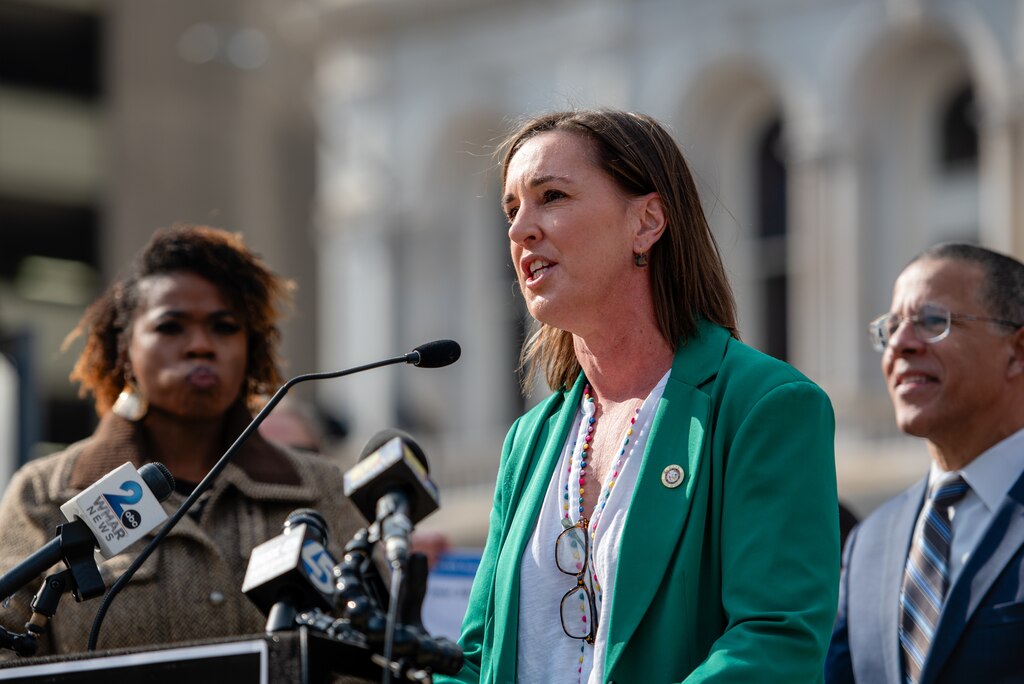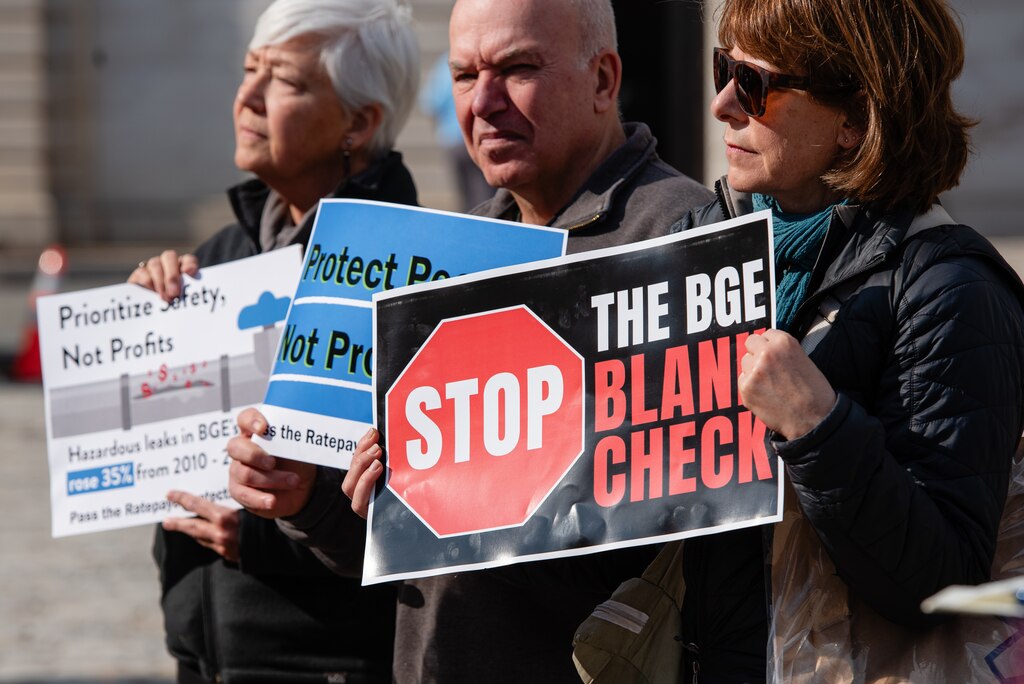Maryland lawmakers have joined a growing call against escalating utility bills. Del. Elizabeth Embry, a Baltimore Democrat, recently introduced legislation to tackle Baltimore Gas and Electric’s rate hikes on natural gas.
By June, BGE customers with combined gas and electric are expected to see an estimated 12.4% increase. That’s in part because BGE’s gas delivery rates have more than tripled since 2010, rising from $0.26 per therm to $0.85 in 2024, exceeding the rate of inflation, according to a report last June from the Maryland Office of the People’s Counsel.
At a news conference Tuesday in Baltimore, Embry, Attorney General Anthony Brown, Maryland’s People’s Counsel David Lapp and Baltimore City Council President Zeke Cohen joined labor, consumer and climate advocates to lay blame on 2013 legislation called the Strategic Infrastructure Development and Enhancement (STRIDE) Act.
That law encouraged utility companies to replace aging gas infrastructure, allowing them to add a monthly surcharge to customer bills to recover the costs of projects.
The Baltimore Banner thanks its sponsors. Become one.
Embry said the purpose of the STRIDE Act was to improve safety by preventing gas leaks, but instead “it has been used to just replace gas infrastructure wholesale.”
Lapp said state agencies have been flooded with calls from BGE customers seeing the impacts of the STRIDE Act. He said reforms to it would be the “single most important action Maryland can take to address the massive utility bills customers are facing today.”

Embry’s proposal, also known as the Ratepayer Protection Act, would require utility companies like BGE to provide the Maryland Public Service Commission with more detail about proposed infrastructure replacement projects.
“This bill returns the STRIDE Act to its original purpose and protects the pocketbooks of ratepayers,” Embry said.
A spokesperson for BGE said Baltimore has the oldest natural gas pipeline system in the country and it needs upgrading. BGE’s “Operation Pipeline” is a multi-year project upgrading cast iron and bare steel pipes with new, more durable gas pipelines.
The Baltimore Banner thanks its sponsors. Become one.
“There are many reasons for the increased cost of energy, most of which have nothing to do with BGE,” said Nicholas Alexopulos, a company spokesperson. “Blaming the increased cost of energy on BGE’s required maintenance of the gas system is misleading and does not address the impact of increased usage nor market forces caused by insufficient in-state generation.”
The Ratepayer Protection Act would require utility companies to provide a timeline for completing eligible projects, their expected useful life, estimated costs and a description of customer benefits. Additionally, utility companies would need to demonstrate projects are prioritized based on their risk to the public and cost-effectiveness.
Utility companies would also be required to compare the project with other alternatives, such as leak detection and repair and the retirement of portions of the gas system.

And the companies would need to notify customers “affected by proposed projects at least two years in advance of construction to allow customers the opportunity to electrify,” the bill reads.
If passed, the law would go into effect Oct. 1.
The Baltimore Banner thanks its sponsors. Become one.
Embry’s bill includes sponsors and co-sponsors from the city and Anne Arundel, Baltimore, Prince George’s and Montgomery counties. A similar bill last year did not make it out of the House Economic Matters Committee.
Del. Marlon Amprey of Baltimore and Del. Adrian Boafo of Prince George’s County last month called for the Maryland Public Service Commission to “impose an immediate moratorium on all public utility rate increases for the foreseeable future.”
Expensive gas pipeline replacement projects will continue to increase monthly bills, Lapp said, and without intervention, his office projects the average BGE customer’s monthly winter bill could double by 2035, costing an estimated $450 per month.
BGE acknowledged utility bills are going up but said increases for supply rates and charges related to the EmPower Maryland program, a state initiative to incentivize energy efficiency and conservation efforts, are outside of their control.
“Delegate Embry’s bill is an important tool in reducing Marylander’s utility bills and insurance ensuring that gas utility companies are good stewards of consumer’s money and don’t raise their rates because of wasteful spending,” Brown said. “The stakes are nothing short of life-threatening.”



Comments
Welcome to The Banner's subscriber-only commenting community. Please review our community guidelines.